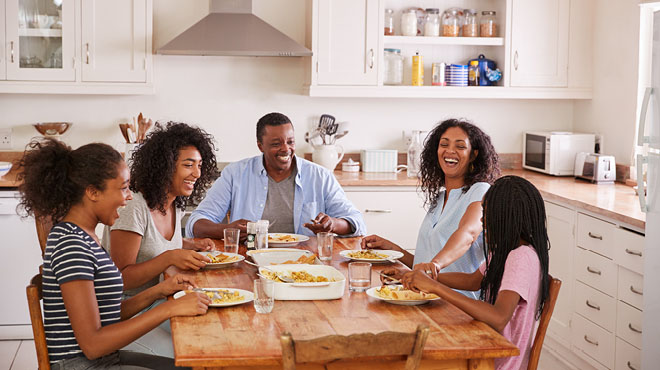Recent Posts
COVID-19 and spiritual life: Controlling anxiousness in your family

You may feel that the stress level in your home has been raised since the COVID-19 pandemic began. Changes in routine have led to the removal of usual support systems that help our families with their mental and spiritual framework. This may include faith and religious community groups, faith formation confirmation and other programs, after-school activities, clubs and school. Thankfully, spirituality and religion offers help for dealing with anxiousness during crises like COVID-19.
The hope for a quick resolution of COVID-19 may be a little idealistic, yet parents can combat anxiousness in the family by bolstering some resemblance of the ordinary, normal life. Remember that an event doesn't necessarily equal a crisis. COVID-19 is a stress-filled event for many, and it is filled with challenges. These challenges should not be under- or overestimated, but we can take steps to lessen the impact so it doesn't become a crisis.
People under stress have normal reactions to an abnormal event. This includes feeling anxious when an event feels unpredictable. While COVID-19 is an abnormal event, it is an event we will eventually get through, and, as my particular faith likes to say with regard to God, "We are more than conquerors."
Here are 3 spiritual health tips you can try to lower anxiety levels in your family:
1. Model good coping behaviors.
While we all are anxious in some ways, we can be less anxious by working on our own anxiety. For some, this might include taking medications, doing exercise, or getting involved in mindfulness or similar activities. Whatever you do for coping, it potentially will benefit your family since they are influenced by your aura of calm.
A friend used to say to me: "You know, chaplain, when we see you and your colleagues come around, we don't think things are quite as bad." How true that is for all of us. We can be anxious, yet control our anxiety. Part of the benefit could be lowered stress levels and increased physical well-being with our immune system. One of my favorite movies, "The Bishop's Wife," has a scene where a character is about to enter a meeting filled with conflict. You can hear the shouting on the other side of the doors. She could hear the group inside criticizing her husband. However, prior to opening the doors, she stopped and centered herself for a moment. Then she proceeded in with guarded, but cautious, optimism. This action was able to lower the negativity of the environment. In the same way, it helps us to come to stop, gather our thoughts and take a deep breath in the moment. It can make a big difference.
Music, massage and spiritual direction also are just a few other options to help you so you can help your family better cope with COVID-19 anxiousness.
2. Answer questions over dinner.
One of the best questions I like to ask during dinners is: "What are three good things that happened today or this week?" The responses often are one-line zingers filled with laughter. The point is to celebrate the good. A former colleague used to begin each leadership meeting with this question, and it set the tone for the entire meeting.
It is easy to start and keep on filling a home with negative energy, whereas a positive beginning produces an atmosphere of getting started on the proverbial right foot. Our families can help by being involved as leaders in these discussions. Other suggestions include playing a board game, going for a ride in the country or taking a walk.
We can continue to connect with others in unique and safe ways. A recent news story showed how a son visited with his father at a nursing home using his phone and looking at each other through the window. In another story, two people played a game together from their apartment balconies. Model how you can creatively connect with people, because we do need each other and these safe interactions can be learning experiences for better coping.
3. Carry forward lessons learned during COVID-19.
Most of us remember where we were during tragic national events, such as 9/11 or the space shuttle Challenger exploding. COVID-19 will be remembered for a long time, and how we coped with it will be etched into our memory.
Your family may be feeling a lot of anxiety right now, but reflect on what you can learn in this crisis for present and future coping. Think about how you can preserve these skills and how you can use it to strengthen family relationships. Remember the Etch a Sketch toy? May we not shake this crisis off like an Etch a Sketch drawing after this crisis is over.
We will make it through this. In the words of a "Star Trek" admiral as he lead his fleet of ships against the enemy aliens seeking to invade Earth, I say to you likewise: "To us all."
William Creech is a clinically-trained, board-certified chaplain in Mankato, Minnesota.





